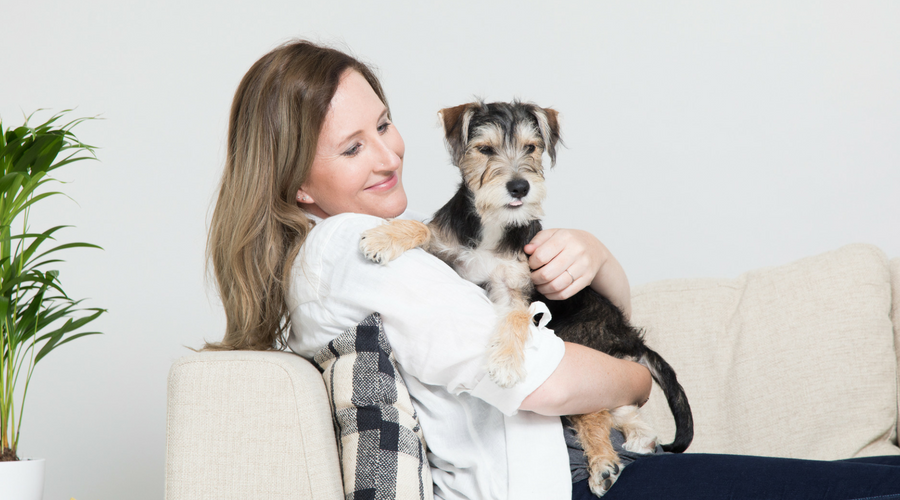You’ve bought a lead. You’ve stocked up on poo bags. You and your puppy are ready to go. Exercise is an important part of your energetic puppy’s routine, but too much can increase their chances of suffering from issues like joint pain later in life. So what’s the right amount? Head Vet Sean is here with his top tips.
Finding the right balance
Puppies are naturally energetic. But growing takes lots of energy too, so it’s important your puppy doesn’t use up all their va-va-voom in the park. A good rule of thumb for puppy owners in terms of how much exercise the dog should get (especially those under 14 weeks) is 1 minute of active exercise per week of life up to three times a day. So at 8 weeks, 8 minutes of exercise, three times throughout the day. A 3 month old (12 weeks) would have 12 minutes at a time, three times over the day and so on.
To strike the right balance, watch your puppy’s behaviour. When they start to look tired, it’s time to rest.
Read more: Mental & physical exercise for your dog
What kind of exercise is best for my puppy?
Exercise isn’t just about keeping your puppy active; it’s also a chance to socialise with other people and dogs. Getting out and about lets your puppy experience new sights, sounds and smells – all great for their mental development. Just make sure your puppy’s vaccinations are up to date before you start exploring. Vaccination schedules vary, so always ask your vet when it’s OK for you and your puppy to hit the park. It’s likely to be somewhere around the 11-week mark.
How do I avoid over-exercising my puppy?
An active puppy is generally a happy puppy, but over-exercising your dog when they’re young can lead to mobility problems later. Follow these tips and give your puppy the best possible start.
- Let your puppy set the pace – they’ll show you what they’re comfortable with. Spritely dogs like Springer Spaniels are likely to be much more energetic than laid-back breeds, like Shih Tzus
- Limit high-impact exercise – like long walks, running, jumping, or playing on hard surfaces
- Stop when they’re tired – keep your eyes peeled for signs your puppy’s worn out
- Give big dogs lots of rest – large and giant breeds are more prone to joint issues, so if your dog is a German Shepherd, Great Dane, or similar-sized breed, it’s important to build up activity slowly
- Let them rest after dinner – getting exercise within 30 minutes of eating can cause your puppy to bloat
- Let them nap – puppy looking snoozy? Leave them to it. Sleep lets their body grow, cells repair, and brain develop.
Is my puppy’s food making them hyperactive?
It’s unlikely your puppy’s food is the reason they’re always so full of get-up-and-go. Puppies have lots of mental, as well as physical, energy. If your hyper puppy’s still wired after physical exercise, try adding some extra mental exercise to their day:
- Interactive play – swap fetch for a problem-solving game, like hiding a ball under cups
- Toys – especially challenging ones like Kong toys
- Training – master ‘sit’, ‘stay’ and ‘roll over’ then try some more creative commands
- Adventures – new experiences will get your puppy’s brain working overtime
- Socialising – great for mental stimulation and mastering doggy manners
Get advice on: Socialising your puppy


When is it safe to let my puppy jump in and out of the car boot?
hi
Thnx dear. i am searching for exercises for my puppy..i just locate that here
thnx and regards